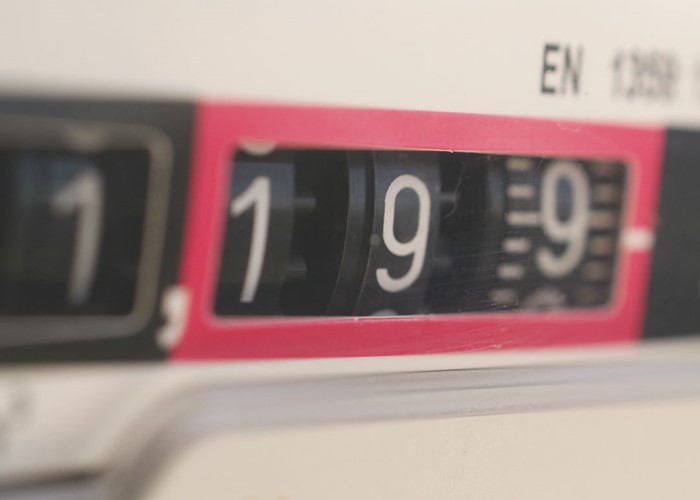The secret energy price rises that affect you!

Tens of thousands of customers are going to have shock bills early this year, and its partly thanks to a naïve press.
The gas and electricity suppliers are brilliant at controlling households' behaviour and one of the key ways they do it is through the media. Just recently, EDF once again played us to good effect.
EDF Energy promised last year not to raise prices on its standard tariffs until March. The standard tariffs on offer from EDF and the other five big suppliers are always hideously expensive - so maintaining a price freeze on these tariffs is hardly worth shouting about.
Yet some of the media took the bait, promoting EDF as a safe company to stand by at these times when the other suppliers have been increasing prices.
However, recently EDF notified customers on two of its cheapest tariffs, Online S@ver versions three and four, that they are to be switched to the supplier's standard tariff with effect from 1 January 2011.
So this switch means a price increase in the hundreds of pounds for thousands of households. Happy New Year, EDF customers.
In fairness to EDF, they contacted affected customers six weeks before the changeover would take place, and encouraged them to call the firm to arrange a move to an online, fixed or tracker tariff if they did not want to move onto the standard tariff. EDF also says the fact that these tariffs were scheduled to end on December 31st was communicated in the terms and conditions when customers signed up.
However, if customers didn't pay any attention to the small print or the letters they received from EDF, they could have been caught out.
When EDF learned of lovemoney.com's coverage of this issue today, the company complained, claiming it has been open and transparent with journalists about what was and wasn't covered by the freeze. But the original press release makes no mention of Online S@ver versions three or four, promising that "EDF is freezing its standard energy prices... ensuring new and existing customers can benefit from stable, competitive energy prices at the time they need them the most".
Just tell us what to write and we'll do it!
Suppliers use the media to their advantage in other ways. They make announcements that they have cut prices when they have done no such thing. (Read You're making the same mistake again for more on that.) Suppliers talk up the pressures they have regarding their infrastructure costs, so that they can push forward the time when they can get away with increasing our prices.
Meanwhile, they feign sympathy when they increase our tariffs due to rising wholesale gas prices, but they maintain absolute silence when wholesale prices fall. All of these techniques affect when and why households switch energy, and not in a good way.
EDF is not alone
EDF is not the only company to shunt customers over from cheap tariffs to expensive standard tariffs in the past few weeks. E'ON, npower and Scottish and Southern Electric, which includes Southern Electric, Scottish Hydro, Swalec, Atlantic and Airtricity, have all done so too. In total, tens of thousands of people will be affected.
Related blog post
- Ed Bowsher writes:
Why energy firms are hiking prices
Energy companies have boosted their profit margins massively in the last couple of months. Here's one reason why.
Read this post
What's more, for most of these people it will be on top of an announced increase in prices: standard tariffs are expensive at all times, but recently most suppliers put the prices up still further (When suppliers make large scale increases they have to announce it publicly, so they can't whistle to themselves and quietly make the change). I wrote in December how a large chunk of the country will be paying more this winter due to these price increases. You can read about that in 10 million energy bills rise.
What you can do
Fixed tariffs usually have fixed dates when you will be moved onto the standard tariff. With variable tariffs it can usually happen to you at any time, so you need to keep an eye on it by checking your bills and reading all the letters you receive from your energy company.
If you've been informed of an increase inside the past 20 days, you can refuse to accept the change. Read The secret trick you can use against your energy provider to see how you can stay on your old tariff price for six weeks or more before you have to switch.
Rachel Robson gives you the lowdown on five ways to cut your energy bills
With more than 3/5ths of households on standard tariffs, it's worth checking whether your supplier has put you on theirs, either stealthily or otherwise. Furthermore, many tariffs have drifted up in price so much that they are on a par with standard tariffs. This is more likely the longer you've been with your supplier, meaning you could save a lot of money by switching sooner rather than later.
Don't underestimate how much more you can save if you switch before the end of winter. We use about about two-thirds of our entire energy consumption during the coldest six months.
If you want to avoid falling into stealth-price increases or other traps laid unwittingly for you by the media, whenever there is some energy news, try to find out who it will impact. If a price increase or decrease is announced, for example, is this going to be applied to standard tariffs only, or are the cheapest tariffs also affected? I try to write regularly about what's really happening, so keep an eye out for my articles.
More: Boost your pension by £416,186! | The cheapest places to buy property in 2011
Comments
Be the first to comment
Do you want to comment on this article? You need to be signed in for this feature